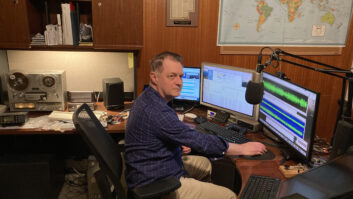James F. Brown, former director of Radio Free Europe, died Nov. 16, according to the New York Times.
He died from an infection caused by a broken leg. He lived in Oxford, England.
Brown, an English citizen, worked at Radio Free Europe from the mid-1950s onward. He was appointed director in 1978 and resigned in 1984 due to disagreements with the Reagan administration over its insistence on aggressively confronting the Soviet Union and its Eastern European allies. Brown had been a supporter of the Nixon-Carter “détente” approach to Soviet relations.
According to the Times obituary, Lech Walesa, an unofficial labor leader and former shipyard worker, did not initially know about the shipyard strikes in Gdansk until he heard about them on Radio Free Europe.
Brown joined Radio Free Europe in the late 1950s, during a period of reorganization at RFE after the Soviet invasion of Hungary to put down the Hungarian uprising in 1956. Many accused RFE of encouraging the uprising and investigations followed, leading to a less-confrontational/more “news”-oriented approach to broadcasts.
Brown blossomed at the redesigned Radio Free Europe of the 1960s and 1970s, working his way up to research director, deputy director and later network director before being named to the director’s job during the Carter administration.
With increased funding for Radio Free Europe, and its sister Radio Liberty, the Reagan administration expanded RFE’s mission, insisting on more aggressive broadcasts, something Brown disagreed with, leading to his resignation in 1984.
In the Times’ obituary, Arch Puddington, an author of a history of RFE, says of Brown, “He was a prudent and moderate sort of man who wanted to ensure that the mistakes of ’56 were not repeated… On the other hand, he was very important in establishing the RFE strategy on how it covered the rise of the Solidarity movement in Poland in 1980, the most serious challenge to Communist authority since 1956.”
Read it here.











